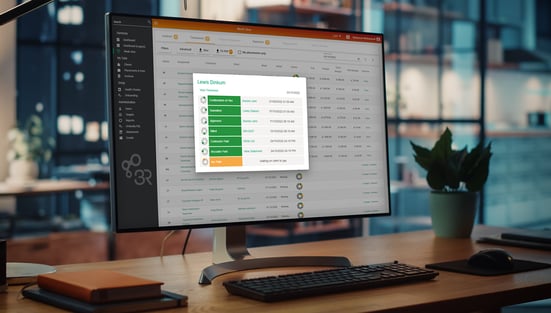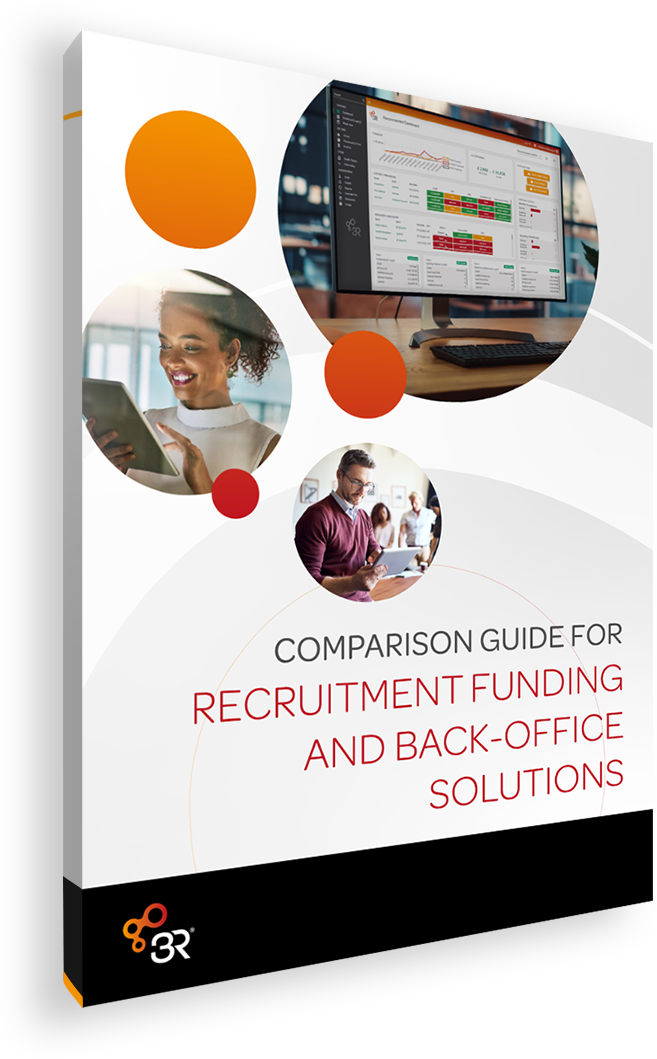Everything you need to know about Intermediary Reporting

In 2014, the Finance Act underwent reform to clamp down on genuine employment being disguised as self-employment to reduce employment taxes and other employment costs.
It was suggested that employment intermediaries were being used to enable the exploitation of this gap in agency legislation, and this is why the HRMC intermediary reporting was introduced.
This article answers some of your most common questions about intermediary reporting.
What are intermediary reports?
Who do employment intermediary rules affect?
What do recruitment agencies need to consider?
What are the HMRC intermediary reporting dates?
What are the steps recruitment agencies need to take?
How can back-office software support you to be compliant?
What are intermediary reports?
A business is classed as an intermediary if it arranges for people to work for another business and be paid for the work done - such as recruitment agencies and recruitment firms.
HMRC therefore requires agencies to submit regular information, known as ‘Intermediary Reporting’ to help them easily identify people that have not declared their earnings.
Intermediaries with more than one temporary, contract or interim placement being paid outside of Pay As You Earn (PAYE) payroll will need to comply by submitting reports that contain details of these candidates, the amounts they have been paid as well as how they were paid e.g. umbrella, limited or self-employed.
Who do employment intermediary rules affect?
The rules affect self-employed contractors who have to pay tax in the UK. It applies to them if they are supplying their services via an intermediary in the UK or overseas while resident in the UK.
It is however the full responsibility of the UK-based intermediary that has the contract with the client for the person’s services that is responsible for sending the intermediary reports.
The reports can be submitted weekly or monthly with the minimum frequency being once every 3 months.
Check list to see if you are responsible for intermediary reporting.
Answer yes to all these points and you will need to comply each quarter:
An agency that supplies people’s services to a client
Have contracts with your clients
Provide multiple people to multiple clients
Provide people’s services in the UK or, if oversees, the candidate is resident in the UK
Make one or more payments for the people’s services
What do recruitment agencies need to consider?
Financial penalties
The biggest risk to agencies is that non-compliance can result in escalating financial penalties and these can quickly stack up. At £250 for your first offence all the way up to £1,000 for third or later offences within a 12-month period – with £600 a day penalties for continued failure after notification.
You will get financial penalties for:
- Late reports
- Incomplete or incorrect reports
Remember that if you haven’t supplied workers in a specific quarter, you must still file a ‘nil report’ or inform HMRC that you are no longer an intermediary to avoid penalties.
Record keeping & GDPR

Agencies should also be considering compliance in regard to the collection, security and storage of their contractors’ data. Any personal data breaches could result in your company being reported to the ICO and possible financial prosecution.
As an agency you are responsible for ensuring people’s Personally Identifiable Information (PII) is collected and used in line with General Data Protection Regulations (GDPR) and stored securely, protected from unauthorised access, use and other cybersecurity threats.
Specifically, in relation to intermediary reporting, HMRC require you to keep documents that prove what you sent to HMRC was correct. You must keep this information secure for at least 3 years as evidence of the reasons why you did not operate PAYE on people’s payments.
The best way for recruitment agencies to ensure best practice is to use purpose built recruitment technology that has pre-defined automated processes to ensure efficient data collection, approval tracking and easy compliance, all wrapped up in a secure system with disaster recovery and online back-ups as standard.
What are the HMRC intermediary reporting dates?
The quarterly HMRC intermediary reporting periods are the same every tax year and are outlined below.
You must send an Intermediary Report to HMRC at least once every 3 months as a minimum. You can do this more frequently if you wish, but who needs the extra admin.
Reporting Period (tax year) |
Deadline Date |
|
Quarter 1: 6 April – 5 July |
5 August |
|
Quarter 2: 6 July – 5 October |
5 November |
|
Quarter 3: 6 October - 5 January |
5 February |
|
Quarter 4: 6 January – 5 April |
5 May |
What are the steps recruitment agencies need to take?
These are the steps you will need to take to submit your intermediary report to HMRC.
- Create an HMRC online account, also known as a Government Gateway Account – you’ll need your Gateway ID and password to complete the process
- Collect all the required information on your UK Contractor base as required by HMRC:
Your agencies details: full name, address, and postcode
Your contractor’s personal details: full name, address and postcode, National Insurance number, date of birth and gender
Your contractor’s engagement and payment details:
- Non-PAYE classification reason
- Unique taxpayer reference (UTR)
- Start and end date/s
- Amount paid
- Currency
- VAT status
- Name and address of party paid
- Companies House registration number of party paid
- Format your information into the required HMRC intermediary reporting template
- Log into the HMRC’s online ‘employment intermediary report’ You will need your Government Gateway Account details
- Upload your report/s, check for formatting errors and missing data and fix all issues before submitting your data to avoid penalties
How can back-office software support you to be compliant?
 Many recruitment businesses focus on front-end technology to support their business with the sourcing, selection and management of candidates, however there are clear benefits to implementing a back-office system designed to improve your business administration efficiency and contractor experience.
Many recruitment businesses focus on front-end technology to support their business with the sourcing, selection and management of candidates, however there are clear benefits to implementing a back-office system designed to improve your business administration efficiency and contractor experience.
As an example, the 3R back-office system integrates seamlessly between your CRM and your accounting software, leveraging automation to take care of some key business functions such as:
- The onboarding of new placements and contractors, capturing the right compliance information at the right time in a secure, cloud-based platform – that gives recruiters a traffic light dashboard of onboarding progress
- A simple to use contractor interface (98% of users rate it as 5 star) for timesheet submission, all with automated authorisation processes and no timesheet deadlines
- Fully automated invoicing and daily contractor payroll with 100% accuracy
- Client bad debt reporting with real-time data and dashboards to keep control of your cash flow
- Live credit limit management and a 5 Star credit potential rating to inform you of the credit headroom and growth potential of your clients
- Best practice processes for the determination and data capture for IR35 compliance
Specifically relating to HMRC Intermediary Reporting…
3R’s back-office software works hard for you. It eliminates the need for any manual data work or an Accountant’s input by continuously gathering and securely storing all the intermediary information the HMRC will need from your agency.
Our system reminds you every quarter (never miss a deadline again!) to simply download your report – already formatted exactly as the HMRC requires it. So, all you have to do is log into your Government Gateway Account and upload the file – easy and quick.
With 3R you can also expect unrivalled customer service. A dedicated Business Consultant and quick responses from our supporting compliance, accounts and credit control team members.
If you are intrigued to find out how 3R can support your recruitment business with technology that leads the way with best practice time saving features, get in touch.
Last updated: September 2024

